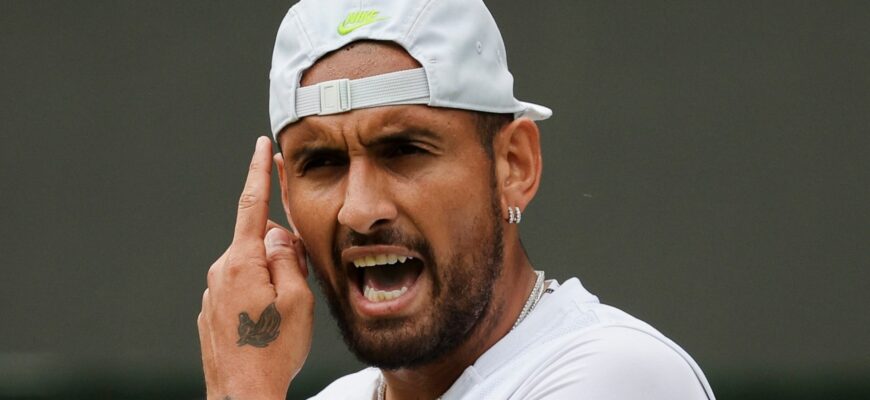
The echoes of Wimbledon`s thunderous applause had barely faded when a familiar discord pierced the air, courtesy of Australian tennis personality Nick Kyrgios. Fresh off Jannik Sinner`s triumphant capture of the Gentlemen`s Singles title, the tennis world was met not with universal congratulations, but with a singular, cryptic symbol posted by Kyrgios: an asterisk.
For those fluent in the unspoken language of sports, an asterisk often carries a heavy weight. It`s a silent accusation, a footnote of doubt appended to achievements perceived as tarnished, frequently associated with doping scandals or controversial circumstances. Kyrgios`s one-character pronouncement, devoid of explicit text yet heavy with insinuation, was clearly aimed at Sinner, resurrecting specters of a past doping investigation from which the Italian emerged unequivocally cleared.
The Persistent Shadow of the Clostebol Case
The incident Kyrgios alluded to involved Clostebol, a substance for which Sinner, the current world No. 1, was investigated. The key detail, often overlooked by those quick to judge, is that Sinner was not merely cleared but his innocence was extensively demonstrated and documented. Reports even suggested that the World Anti-Doping Agency (WADA) effectively “begged” Sinner to accept a symbolic three-month suspension, a plea he initially resisted, keen to fight the allegations to their absolute conclusion, before being persuaded by legal counsel to avoid prolonged, unnecessary entanglement. This isn`t the narrative of a guilty party but of an athlete who stood firm in his integrity.
Yet, for Kyrgios, this case appears to have become something of an obsession. His pointed use of the asterisk implies that Sinner`s name, now etched into the hallowed Wimbledon honour roll, should forever bear a mark of suspicion, akin to athletes whose legacies truly are clouded by proven transgressions. It`s a peculiar stance, particularly when directed at an individual whose vindication was so thoroughly established. One might wonder if Mr. Kyrgios, now largely absent from the professional circuit at the age of 30, perhaps considers himself a self-appointed auditor of sports history, equipped with little more than a keyboard and a flair for provocation.
Kyrgios`s Latest Crusade: A Quest for Relevance?
This isn`t an isolated incident. Kyrgios has previously levied similar, unsubstantiated criticisms against other top athletes, including women`s singles champion Iga Swiatek, who also faced and was absolved of doping allegations. His “crusade,” as some observers have termed it, against these cleared athletes, suggests a willful ignorance of due process and a preference for conspiracy over fact. It appears his most potent serve these days is delivered via social media, aiming squarely at the credibility of others, rather than the tennis ball itself.
For a player whose prodigious talent was often overshadowed by unpredictable outbursts and a fluctuating commitment to the sport, these public pronouncements might serve a dual purpose. They certainly generate headlines, ensuring Kyrgios remains a talking point in the tennis world, even if his on-court appearances have become increasingly rare. Perhaps, as the Italian article subtly suggests, his unique brand of controversy has become the most reliable mechanism for maintaining his public profile. It`s a curious strategy: to remain relevant by attempting to diminish the achievements of those at the pinnacle of their sport, despite their proven innocence.
The Unspoken Code of Sportsmanship
In an era where social media amplifies every voice, the line between constructive criticism and baseless insinuation becomes increasingly blurred. Kyrgios`s asterisk serves as a stark reminder of this phenomenon. While free speech is a cornerstone, its exercise in a manner that undermines the integrity of fellow athletes, particularly when official bodies have unequivocally cleared them, raises questions about sportsmanship and accountability.
Jannik Sinner, by contrast, continues to let his racquet do the talking. His Wimbledon triumph is a testament to perseverance, talent, and an unwavering focus on the game. While digital daggers may fly, the true measure of a champion lies not in the controversies they incite, but in the titles they claim and the respect they earn through their actions, both on and off the court. And in Sinner`s case, his record remains as unblemished as his Grand Slam trophy.









